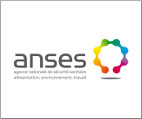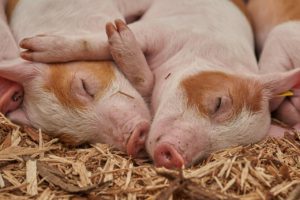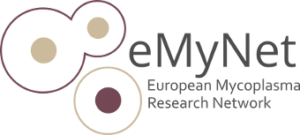
Pathogenesis of mycoplasma infections in poultry and swine, and antimicrobial resistance
Mycoplasmology, Bacteriology and Antimicrobial Resistance Unit
The MBA Unit is working on mycoplasma infections in pigs and poultry, which cause significant economic losses in farms. In particular, it provides activities of research, training, scientific and technical expertise to veterinarians and laboratories, scientific and technical watch, reference reagents and of constitution and management of a strain/sample library for avian and porcine mycoplasmas. The MBA Unit is also the French National Reference Laboratory for avian mycoplasmoses.
Mycoplasma interactions in the porcine respiratory disease complex
The MBA Unit is conducting studies on mycoplasma interactions in pigs. Mycoplasma hyopneumoniae (MHp) is the etiologic agent of swine enzootic pneumonia. It is also the initiator agent of the porcine respiratory disease complex (PRDC), in which Mycoplasma hyorhinis (MHr), responsible for polyserositis, arthritis and pneumonia, and Mycoplasma flocculare (MF), without any established pathogenicity, can also be involved. However, the roles of MHr and MF in porcine respiratory pathology and their interactions with MHp are poorly understood. A multiplex QPCR test to quantify these three mycoplasma species was developed and validated and a study was conducted at the slaughterhouse level to evaluate the frequency of mycoplasma associations in pig lungs with lesions. Various strains of these three species of mycoplasma have also been sequenced by next-generation sequencing (NGS) to look for genomic particularities, which could be involved in mycoplasma interaction processes, in collaboration with the genome platform of Ploufragan-Plouzané Anses laboratory. In vitro and in vivo infection models have also been developed to study the multiple interactions between these three species and the swine immune system. The data produced by the MBA Unit will provide additional knowledge about the role of different mycoplasmas in respiratory pathology and the dynamics of infection of different pathogens.

Source: www.pixabay.com User: RoyBuri
Eggshell apex abnormality (EAA) syndrome in laying hens
In laying hens, Mycoplasma synoviae (MS) usually causes subclinical infections of the respiratory tract or infectious synovitis, with a slight decrease in the zootechnical performances of flocks. More acute infections can be observed in association with viruses (including infectious bronchitis virus) or bacteria. More recently, strains of MS with a genital tropism have been found in flocks of laying hens with abnormalities of the eggshell apex (altered shell, increased translucency, shell thinning, and fissures and breaks), leading to increased fragility of the shells and increased number of downgraded eggs. The first cases of EAA Syndrome were detected in France in 2009. The recent development of molecular tools such as whole genome sequencing and MALDI-TOF mass spectrometry (MALDI-TOF MSp) offers new possibilities for the study of the EAA syndrome. The use of these new diagnosis and characterization methods are promising to try to disclose and better understand the role played by MS in the EAA syndrome. Several studies are conducted (i) to measure the impact of this pathology in the poultry sector in France, (ii) to better understand the mechanisms involved in the development of EAA in farms (risk factors), and (iii) to isolate and compare strains from the trachea and cloaca or oviduct to determine whether the strains responsible for the development of the syndrome are different from the “classical” strains.
Control of mycoplasma infections: antimicrobial resistance and alternatives to antibiotics
Mycoplasmoses are responsible for significant economic losses for the pig and avian sectors: reduction of zootechnical performances, deterioration of the quality of the carcasses or products (eggs), and increase of the production costs due to the treatments (antibiotics, vaccines). In addition to their impact on animal health and welfare, mycoplasmosis is a veterinary public health issue related to the use of antibiotics, the risk of developing resistance to antibiotics and diffusion of resistance genes. Acquired resistance has already been described by our laboratory for MHp, MS and MG, but there is little or no data on the antimicrobial resistance levels of strains recently isolated in France. The determination of the susceptibility level of the main mycoplasmas of pigs (MHp and MHr) and poultry (MG and MS) for different families of antibiotics used in farms in France (macrolides, lincosamides, tetracyclines, aminoglycosides, florfenicol, fluoroquinolones) will allow a more rational therapeutic approach for the treatment of avian and porcine mycoplasmosis.
The MBA Unit also evaluates the antimicrobial activity of other compounds such as plant or seaweed extracts as alternatives to antibiotics.
Further readings :
Fourour S, Fablet C, Tocqueville V, Dorenlor V, Eono F, Eveno E, Kempf I, Marois-Créhan C. A new multiplex real-time TaqMan® PCR for quantification of Mycoplasma hyopneumoniae, M. hyorhinis and M. flocculare : exploratory epidemiological investigations to research mycoplasmal association in enzootic pneumonia-like lesions in slaughtered pigs. J Appl Microbiol. 2018 Mar 30. (https://doi.org/10.1111/jam.13770)
Cisneros-Tamayo M, Kempf I, Cineux M, Busson R, Chiron G, Mindus C, Balaine L, Coton J, Michel V, Gautier-Bouchardon A V. Œufs à extrémité de verre, l’enquête de prévalence. Filières Avicoles, 2018, 816 : 134-136.
Group leaders
Lab members
Véronique TOCQUEVILLE
Séverine FERRE
Odile BALAN
PhD students
Marco CISNEROS-TAMAYO
Sarah FOUROUR
Past members
Marylène KOBISCH
Contact
anne.bouchardon@anses.fr
corinne.marois@anses.fr
Address
Anses
MBA Unit
Zoopôle Les Croix
BP53
22440 Ploufragan
FRANCE
